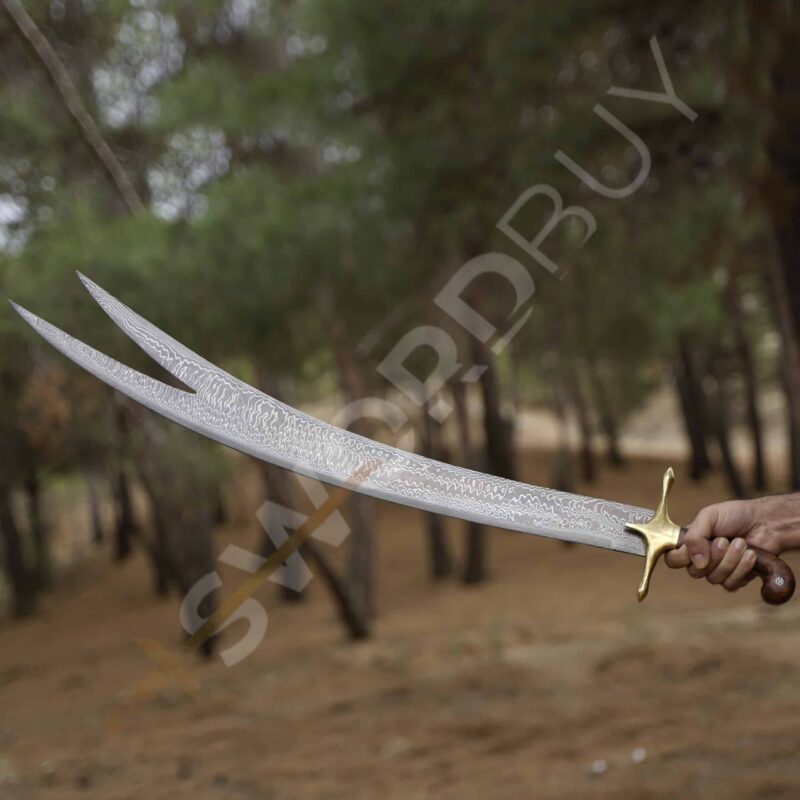The Zulfiqar Sword: A Symbol of Power and Justice
The Zulfiqar sword is one of the most iconic weapons in Islamic history. This legendary sword, known for its distinctive bifurcated blade, is believed to have been gifted by the Prophet Muhammad (PBUH) to his cousin and son-in-law, Ali ibn Abi Talib, during the Battle of Uhud. Beyond its physical form, the Zulfiqar symbolizes justice, valor, and divine intervention.
Historical Importance of Zulfiqar
The Zulfiqar sword holds deep historical significance. During the Battle of Uhud, when the Muslim forces were struggling, Ali wielded Zulfiqar with such bravery that it changed the course of the battle. The famous saying, "There is no sword but Zulfiqar, and there is no hero but Ali," highlights the sword's prominence and the heroic status of Ali. This statement further embedded Zulfiqar in Islamic tradition as a symbol of divine support and triumph.
Design and Symbolism
The most striking feature of the Zulfiqar is its split-tip blade. This unique design is more than just an aesthetic choice; it represents the duality of justice and power. The bifurcated blade is often interpreted as a metaphor for the balance between spiritual and temporal authority. Throughout history, the Zulfiqar has been depicted in Islamic art and is a popular motif in Shia iconography, symbolizing the fight against injustice.
Ali ibn Abi Talib and Zulfiqar
Ali's legacy is closely tied to the Zulfiqar. Renowned for his wisdom, courage, and piety, Ali used Zulfiqar not only as a weapon of war but as a symbol of his commitment to justice and the protection of the faith. His leadership as the fourth Caliph of Islam, combined with his association with Zulfiqar, cemented his role as a defender of the oppressed and a champion of righteousness.
Cultural Influence of Zulfiqar
The Zulfiqar sword has left a lasting mark on Islamic culture. It is celebrated in literature, poetry, and folklore as the ultimate weapon of justice. For many, Zulfiqar represents the ongoing struggle against oppression and the pursuit of truth. In modern times, the sword is still a powerful symbol, often depicted in flags, military insignias, and art across the Muslim world.
Modern Depictions of Zulfiqar
Today, the Zulfiqar remains a revered symbol, especially within the Shia Muslim community. It is frequently seen in jewelry, emblems, and artistic depictions, serving as a reminder of the values it represents: courage, justice, and unwavering faith. The sword continues to inspire and resonate with those who seek to embody these principles in their lives.
Conclusion
The Zulfiqar sword is much more than a historical artifact; it is a symbol of enduring strength, justice, and divine support. Through its association with Ali ibn Abi Talib, the sword has become a powerful emblem of righteousness and valor. As a result, the Zulfiqar remains a significant cultural and religious icon, reminding us of the importance of justice and the fight against oppression.


Comments
Post a Comment